#ornithopod
Explore tagged Tumblr posts
Text
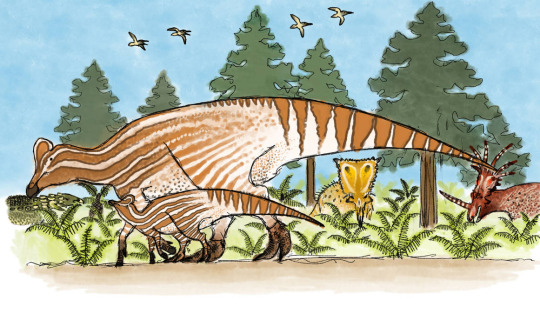
Mother and Son’s Day Out, Dinosaur Park Edition
#hypacrosaurus#hadrosaur#hadrosaurs#late cretaceous#campanian#ceratopsians#ceratopsian#chasmosaurus#styracosaurus#edmontonia#dinosaur park formation#cretaceous#paleoart#dinosaur#dinosaurs#paleontology#palaeontology#paleontology art#ornithischian#ornithopod#ornithischians#ornithischia#paleobiology#paleoblr#palaeoblr
427 notes
·
View notes
Text
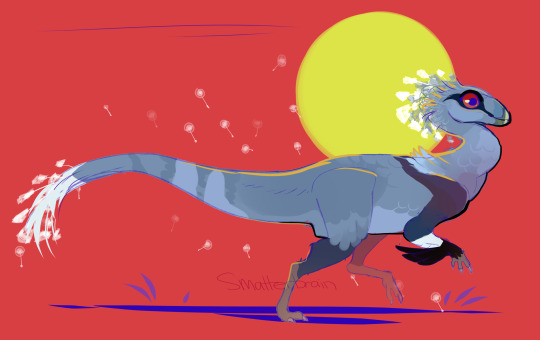
*Island in the Sun plays in the background*
Hyp-hyp
2K notes
·
View notes
Text
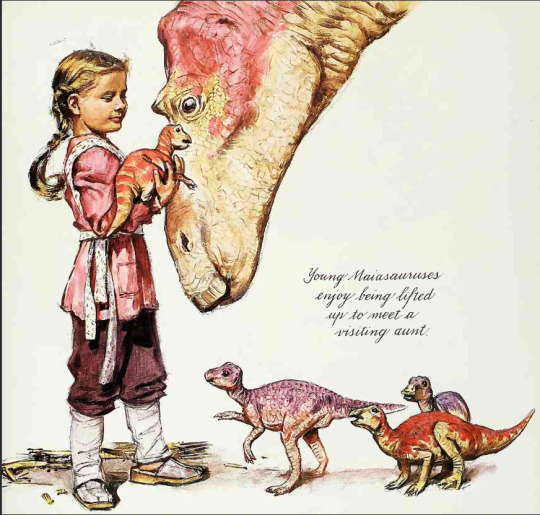
3K notes
·
View notes
Text

The Mists of Lourinhã Eousdryosaurus encounters Lusotitan.
#my art#paleoart#sciart#dinosaur#lusotitan#eousdryosaurus#sauropod#ornithopod#herbivore#lourinha formation#portugal#jurassic#mesozoic#extinct#animal#nature#prehistoric
305 notes
·
View notes
Text











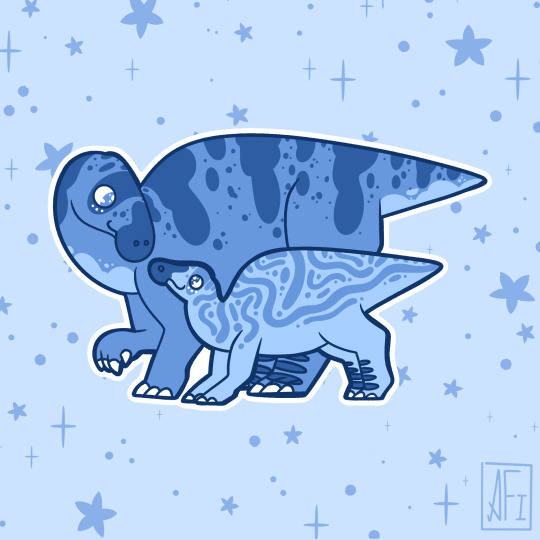


The Ornithopods!
This group can also be called the Hadrosaurs, but that's a group within the ornithopods, and some of the members of this line up don't fit into that box.
Lurdusaurus - Hypsilophodon - Olorotitan
Lambeosaurus - Edmontosaurus / Anatotitan - Iguanodon
Zalmoxes - Corythosaurus - Parasaurolophus
Atlascopcosaurus - Shantungosaurus - Maiasaura
Muttaburrasaurus - Altirhinus
Sticker Group || Shop || Phone Wallpapers
Planned: Leaellynasaura, Tenontosaurus, Ouranosaurus, Brachylophosaurus, Thescelosaurus, Kulindadromeus, Saurolophus, Vectidromeus, Pegomastax, Tianyulong, Heterodontosaurus, Silesaurus, Tietasaura (NEW SPECIES)
(I know some of these are more neornithischians than ornithopods, it's just the best place to fit them in my shop lol)
#art#my art#paleoart#paleontology#science#illustration#dinosaur#ornithischians#ornithopod#hadrosaur#lurdusaurus#hypsilophodon#olorotitian#lambeosaurus#edmontosaurus#iguanodon#atlascopcosaurus#shantungosaurus#maiasaura#muttaburrasaurus#altirhinus
148 notes
·
View notes
Text
Spectember/Spectober 2024 #07: Mole Dino
Today's spec creature is a combination of a couple of submissions – James P. Quick asked for "a post-K/Pg relict dinosaur from pre-glaciation Antarctica", and an anonymous asked for "a subterranean (like, say, Talpa or Spalax) burrowing dinosaur":
At the time of the K/Pg mass extinction some of the small ornithopods that inhabited Late Cretaceous Antarctica had been developing increasingly complex burrowing behavior and a more generalist omnivorous diet than most other ornithischians – and, along with their ability to endure the long dark cold polar winters, this was juuust about enough for them to survive while the rest of their non-avian cohorts vanished.
They were very briefly a fairly successful disaster taxon in the devastated polar forests, but they were quickly displaced by other diversifying survivors and never really got another ecological foothold to regain anything close to the non-avian dinosaurs' former glory.
Instead the little ornithopods specialized even further for burrowing, spending more and more of their lives underground to avoid the increasing competition and predation from mammals and birds.

Now, well into the Cenozoic at the dawning of the Miocene, Cthonireliqua quicki is the very last representative of the non-avian dinosaurs. Small and stocky and mole-like, just 15cm long (~8"), it has muscular forelimbs with large shovel-like claws, a keratinous shield on its head, and a thick bristly tail where large fat reserves are stored.
Its eyes are almost completely absent, only vestigial remnants present under the skin of its face, and it navigates its extensive burrows using sensitive whisker-like filaments and its keen senses of hearing and smell. Still omnivorous like its ancestors, it feeds on whatever it comes across while tunneling – mainly worms, insects, smaller vertebrates, roots, and tubers.
Unfortunately for Cthonireliqua, and the rest of its Antarctic ecosystem, time is running out. Over the last few million years Antarctica's climate has been steadily cooling and drying, the continent has become fully isolated, and the Antarctic Circumpolar Current has formed. Glaciation is well underway in the continental interior, and the once-lush forests are shrinking away and being replaced with tundra.
Soon all evidence of these dinosaurs' existence will be buried under the ice.
#spectember#spectober#spectember 2024#speculative evolution#ornithopod#ornithischian#dinosaur#art#science illustration
153 notes
·
View notes
Text

Pararhabdodon isonensis from the Late Cretaceous (Maastrichtian, 66 Ma), Spain It's the end of the dry season and the sky carries the upcoming rain on a late afternoon.
#paleoart#palaeoart#art#dinosaur#dino#prehistoric#paleontology#palaeontology#digitalart#Pararhabdodon#Pararhabdodonisonensis#Tsintaosaurini#Lambeosaurinae#Hadrosauridae#Hadrosaur#Ornithopod#paleoblr#digital art
209 notes
·
View notes
Text
#Paleostream 19/10/2024
here's today's #Paleostream flocking sketches!!! i missed the live today because doing that stream right before took me out and i had to sleep :P
today we sketched Lambeosaurus, Microraptor, Innovatiocaris, and Haplocheirus




#Paleostream#paleoart#digital art#paleontology#digital artwork#artists on tumblr#palaeoart#digital illustration#sciart#id in alt text#paleoblr#palaeoblr#dinosaur#ornithopod#hadrosaur#lambeosaurus#theropod#bird#dromaeosaur#microraptorine#microraptor#piebald#invertebrate#prehistoric invertebrate#invertebrate art#radiodont#innovatiocaris#alvarezsaur#haplocheirus#disease
119 notes
·
View notes
Text

Happy birthday iguanodon :3
Little late piece to celebrate the naming of iguanodon 200 years later
#paleoart#iguanodon#lmao#art#paleontology#ornithopod#ornithischians#dinosaur#happy birthday#:3#this is the thing I have been forgetting :3#baby dinosaurs#cretaceous#horsetail#plants#sciart
43 notes
·
View notes
Text
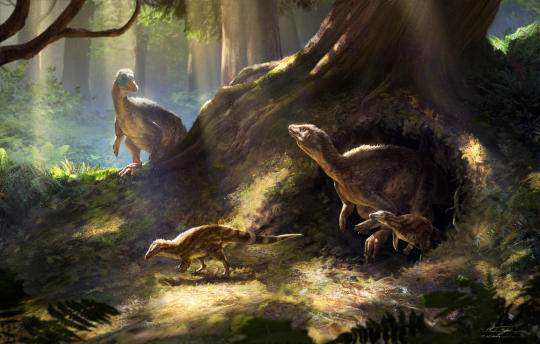
Thescelosaurus neglectus by Anthony J. Hutchings.
#paleoart#paleontology#dinosaurs#fossil#cretaceous#fossils#thescelosaurus#ornithopod#ornithischian#feathered dinosaur
363 notes
·
View notes
Text

Edmontosaurus- everyone's favourite horse-lizard
22 notes
·
View notes
Text

Impression of a Tyrannosaurus rex devouring a recently-killed Edmontosaurus annectens
#paleoart#dinosaur#dinosaurs#paleontology#palaeontology#palaeoart#palaeoblr#tyrannosaurid#tyrannosaurs#tyrannosaurus#tyrannosaur#tyrannosaurus rex#trex#hell creek#hell creek formation#edmontosaurus#edmontosaurus annectens#dinosaur artwork#dinosaur art#dinosauria#theropods#ornithopod#mesozoic
269 notes
·
View notes
Text
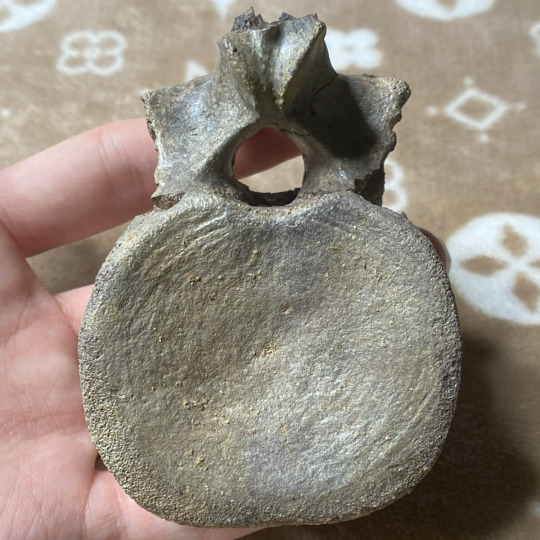
A fossilized vertebra of a Levnesovia transoxiana from the Bissekty Formation in Dzharakuduk or Uchkuduk, Kyzylkum Desert, Uzbekistan. This early diverging hadrosauromorph belongs to a group that includes the famous "duck-billed" dinosaurs. This relatively small hadrosaur was likely prey for the basal pantyrannosaur Timurlengia and the large theropod Ulughbegsaurus.
#dinosaur#fossils#paleontology#palaeontology#paleo#palaeo#levnesovia#hadrosaur#ornithopod#ornithischian#cretaceous#mesozoic#prehistoric#science#paleoblr#レヴネソヴィア#ハドロサウルス科#恐竜#化石#古生物学
79 notes
·
View notes
Text

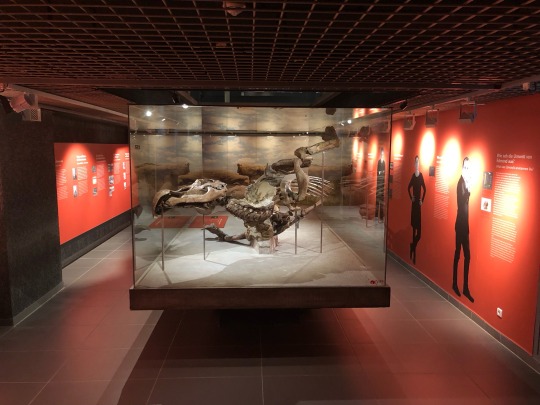
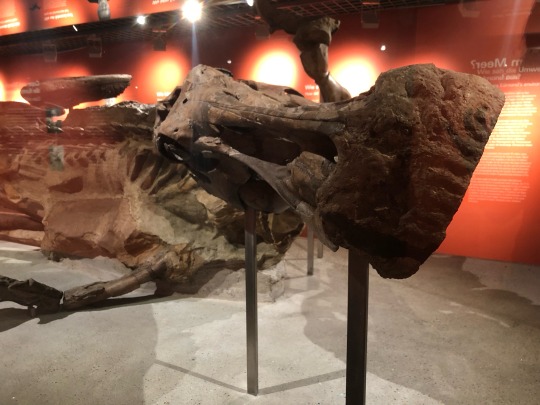
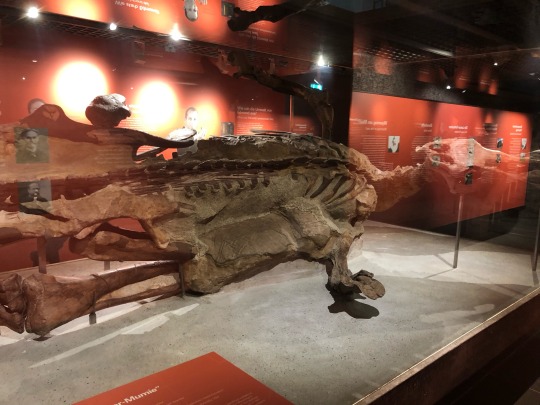
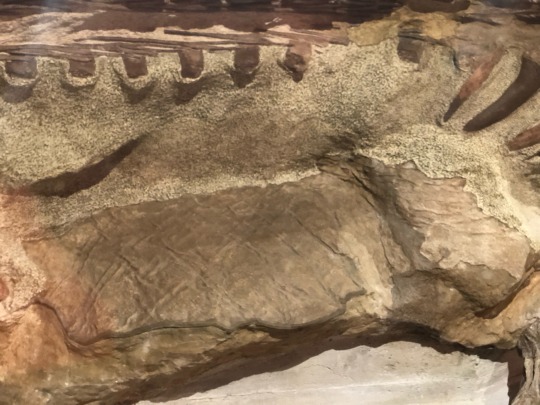
Edmond, the Edmontosaurus mummy.
687 notes
·
View notes
Text
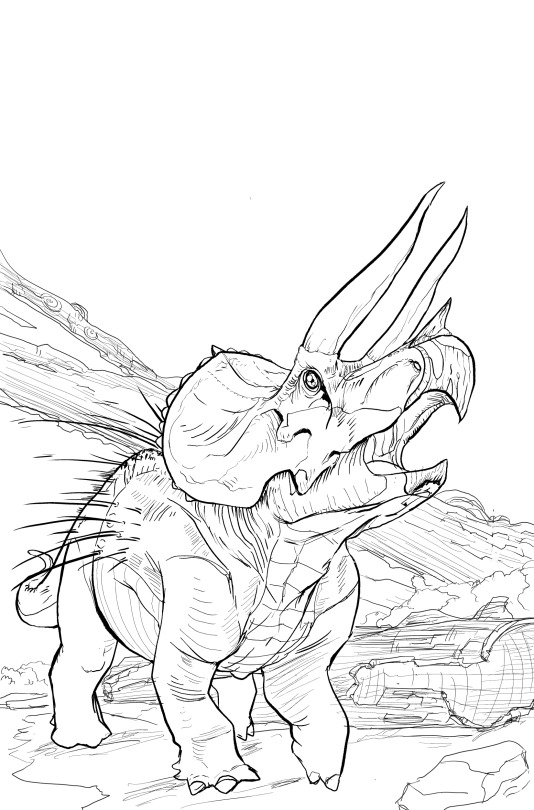
We all love a good theropod, but I'll always be a Tri-guy at heart. So here's triceratops, covered in quills.
#illustration#art#triceratops#ornithopod#paleoart#digital ink#digital illustration#paleoblr#jurassic park#ceratopsian#hell creek formation#triceratops is covered in quills
203 notes
·
View notes
Text




Dinosaur Families poster available now!
Can't decide on one dinosaur family to get from my 17x11 prints? Why not get them all in one! I managed to fit 61 dinosaurs in one poster, which feels so crazy to say!
Preorder ends Nov. 10th :D
#art#my art#paleoart#paleontology#science#illustration#dinosaur#sauropod#carcharodontosaurus#tyrannosaur#spinosaurus#raptor#velociraptor#utahraptor#pachycephalosaur#ceratopsian#triceratops#centrosaurus#ornithopod#hadrosaur#iguanodon#parasaurolophus#ankylosaurus#stegosaurus#paleo party
179 notes
·
View notes